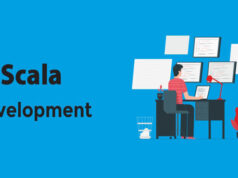First Key to PMP Exam: Attitude to Learning: Perseverance Leads to Success
The time for preparation lasts for two to three months.
- Set a feasible scheme and realistic goals. Make an appropriate learning plan and start studying PMP after 9 p.m.
- Take advantage of fragmentation time. You can make full use of the time when you are commuting or waiting.
- Appropriately sacrifice your entertainment and social time. During the preparation for PMP exam, it is forbidden for you to entertain yourself, but you should firmly abide by the principle of no games and no sports, and cherish any time available.
- Develop abilities in sustainable learning, maintain the rhythm of learning, straighten out the thinking, and work for a long time.
- Stay up all night less, pay attention to and ensure your effective learning time, because good health is the capital of revolution
- Pay attention to the reasonable arrangement of the rhythm of work in some cases in order to coordinate the relationship between work and study.
- Enroll in the PMP Certification Training program and learn from the industry leaders.
Study for yourself. Prove you can still study. Be a student steadily and surely. Get rid of distracting thoughts.
Second Key to PMP Exam: Learning Method
- In-class Exercises
Preview the relevant chapters before the class in order to get a basic understanding of the concept of knowledge points through reading books; listen to the live or video broadcast in class, keep pace with the teacher closely and understand the relevant knowledge points; read the chapters carefully to master the framework and content of the whole knowledge; make full use of all the fragmented time to watch the learning 880-course video.
- Review After Class
Insist to do each chapter exercise, get used to error correction, repeat reading key contents of books constantly, complete the daily leak filling and review the content of the handout.
- General Revision
Finish two sets of mock exams every week, and organize the wrong questions into a set; link the textbooks together and read them so as to sort out and memorize the relevant knowledge points; review the previous wrong questions collection, analyze and understand them well.
- Simulation Questions, Checking and Filling in the Parts Where You Are Weak
Finish three sets of simulated exams, and at the same time continue to make up for the key knowledge.
Third Key to PMP Exam: Study Suggestions
- Get used to the 4-hour PMP exam previously
The formal 4-hour PMP exam is a great challenge of brain power, perseverance and physical strength. I suggest you to do the mock exam a few weeks in advance, after all the actual intensity of exam is much higher.
- Don’t be caught up in and dwell in PMP exam questions
The project management is the only one without the standard answer. Some questions and answers are likely to be preposterous. You can understand them a little, but not have excessive thinking, which may lead to take unnecessary pains to study an insignificant problem.
- Learn and think in the pattern of PMI
Don’t always use your project experience to do the exam, which will only make you more confused, but believe that the PMI method has the best effect.
- Learn to link all knowledge points together
In terms of PMP knowledge points, you should learn by connecting them thoroughly. In fact, the examination is also to test across chapters. Therefore, by doing so you can prevent the omission of knowledge points.
- Focus on the important knowledge and solve major problems first.
The knowledge of PMP is very extensive and deep. You must pay attention to the important content and required knowledge, listen to the key points of the teacher carefully and have a comprehensive understanding.
- Don’t be a bookworm and learn to think in the scene
PMP exam will not only test concept questions, and endorsement has no significant usefulness for it. Therefore, when learning, it is necessary to carefully analyze and understand and put it into the actual project scene to memorize and remember.
Fourth Key to PMP Exam: Performance in PMP exam
Don’t underestimate the intensity of the PMP exam: the questions given by PMI are more difficult than those in China. There are 200 complex reading comprehension questions, with an average of 200-300 words per question. Are you good enough at Chinese? If necessary, can you understand English? The environment of the examination room may affect your performance, such as noise or off-days.
You must stabilize yourself during the course of exam. It’s normal for you to have a little impatience in the 4-hour examination. You must control yourself and calm down slowly. Don’t waste your time on other distracting thoughts.
Be sure to examine the questions carefully, answer the questions according to the requirements, and do not make moronic errors.
Have your own pace of exam, try to finish a question every minute.
During the preparation period, do not slack and not be stubborn to get 5 ‘Above Target’ score, which can be met but not seek. In addition, do not be intertwined with the results, but always optimistic and positive in preparation. After the examination, you must continue to study. PMP still has deeper knowledge to explore. When irritable and tired, you should have a good rest and relax to release the pressure and let out bad mood.
Finally, you should think it over: why learning PMP? Keeping to your original aspiration leads you to success.


































